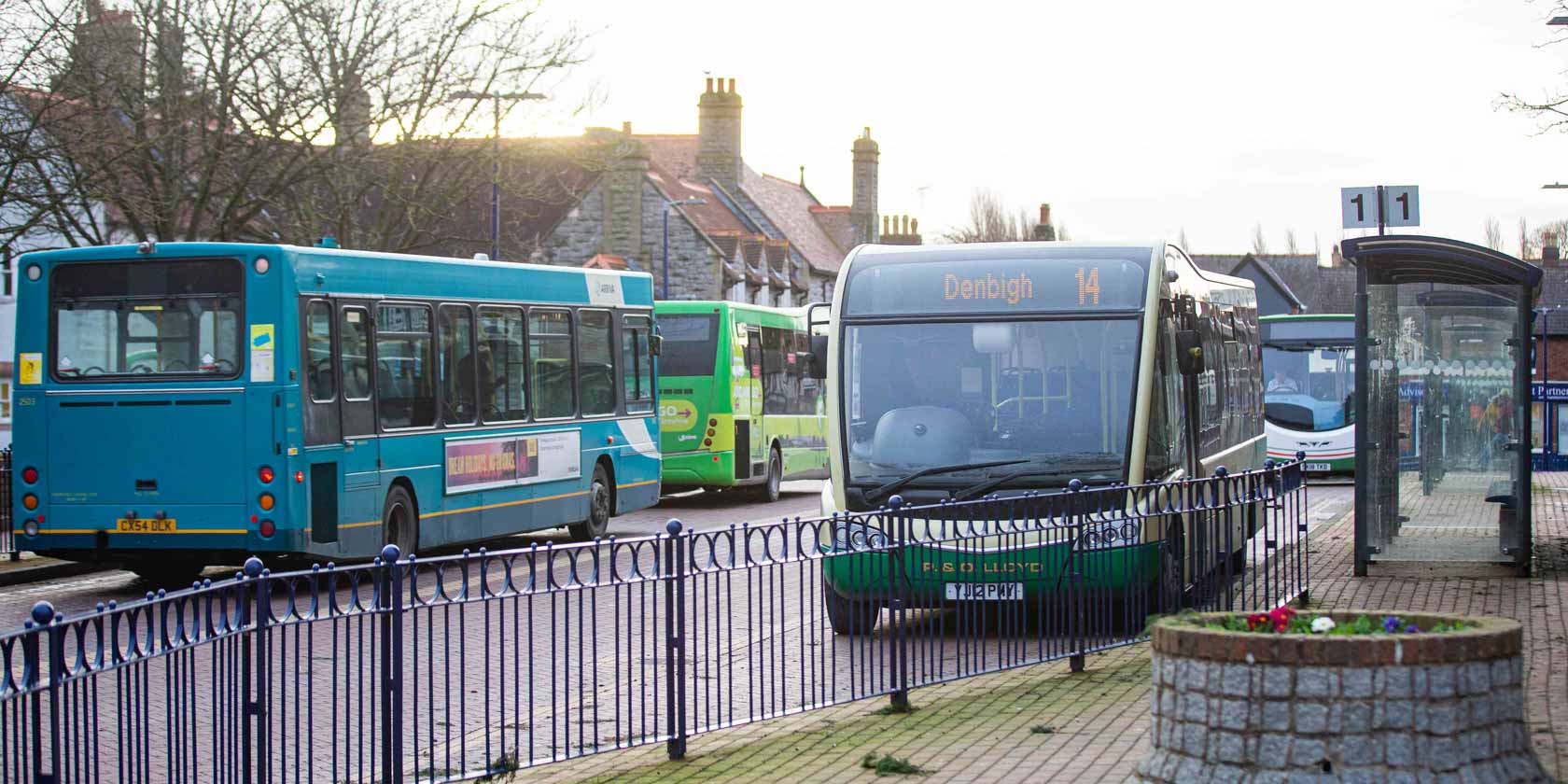Welsh Government extends emergency bus service support funding for full financial year

The Welsh Government has announced an extension to emergency funding to support bus services in Wales.
However, Lee Waters, the deputy minister with responsibility for transport has warned there are “no quick fixes” to solve problems within the industry.
The ‘Bus Emergency Scheme’ was brought in by the devolved government during the Covid pandemic to protect the bus transport system from collapse.
The extension was announced during a lengthy verbal update on bus services in Wales given by Mr Waters in the Senedd.
The Labour politician said: “Simply put, Covid blew up an already brittle business model. In the face of sustained reductions in passenger numbers, we’ve had to provide significant additional support to keep services running, and this has prevented mass cancellations of services and kept communities connected.
“Since the start of the pandemic, we’ve invested over £150 million to keep the bus services running over and above our pre-Covid levels of investment.
“Our actions have saved an industry, and went over and above action taken by the UK Government. Whilst England lost 9.5 per cent of its bus services last year, in Wales that figure was 2.4 per cent because of our actions.”

Mr Waters said the number of people using buses had still not returned to pre-Covid levels.
He said: “This inevitably has left a large gap in the finances of bus companies in Wales. This external shock has shown the hollowness of the privatised model of deregulation.
“Although they provide a public good, bus firms are private companies, but who are now operating in a market without enough customers to make them profitable.
“During Covid, we had emergency funding we could access to get us through the crisis, but that has now all been spent.”
A recent government white paper set out the possible future of bus services, including a system involving ‘one network, one timetable, all accessed by one ticket’.
But Mr Waters said it would take time for such plans to become a reality.
He said: “I am very grateful to representatives of local government, the bus industry and Transport for Wales for working really closely together with us to find a way through our short-term challenges.
“As a result of our joint working, we’ve agreed to extend the existing bus emergency scheme until the end of the school year in July to avoid any disruption to students in the run-up to exams.
“We’ve also agreed to set up regional planning teams supported by Transport for Wales to work with bus companies to establish which services would be viable without additional financial aid, and what routes are the priority for the funding that we are able to make available.”
He added: “We have nearly reached a solution that will allow us to make further funding available to protect as much of the network as we can for the remainder of this financial year.
“This needs to be a more sustainable solution, with a network that reflects changing travel patterns and helps us make the transition to franchising.”
The Welsh Government will make £46m available to support the bus emergency scheme and future arrangements for the whole financial year, as well as to keep other strategic services running.
This is in addition to the £45m which is expected to be spent on concessionary fares for older people, reduced fares for young people, and other regular support for the bus industry.
Mr Waters highlighted that home-to-school transport makes up around a quarter of all local authority direct spending on education.
That figure currently stands at around £137m a year, which he said meant more work would be needed to consider how school transport fits into the wider travel network.
He added: “The emergency funding has been a lifeline, but it’s had the impact of preserving a pattern of services that existed before the lockdowns.
“Travel behaviour has now changed; there are fewer people using buses and trains, and the times of day they are using them has also changed.
“There are fewer commuting journeys and more leisure journeys. We therefore do not want to keep a pattern of services running that no longer reflects demand or need.”

Conservative MS Natasha Asghar said the “sad reality” was that public transport had already faced “drastic cuts” due to impending reductions to the bus emergency scheme.
She said: “The Confederation of Passenger Transport recently set out their three calls to the Welsh Government, and I wholeheartedly say that I support all three of them.
“They estimate that the major cuts to the current bus network could be avoided if the Welsh Government delivers an extra £30 million investment between July this year, when the BES ends, and the end of the financial year.
“We really do welcome this extra funding, as it will also buy the Welsh Government time to work with the industry.”
Mr Waters replied: “She says she supports spending an additional £30 million. I’ve just announced that we’ll be putting an extra £20 million on the table. There remains a gap. We don’t have the exact figures yet, and that’s what we’re working through.
“These are very complicated things to disentangle, because the money that’s given to local authorities to fund concessionary fares is done in arrears when we know the actual spend that’s taken place and we aren’t able to reconcile those figures in real time.”
Plaid Cymru’s Delyth Jewell said a more permanent solution was needed to address the issues facing the bus industry.
She said: “Communities need these bus routes, and bus routes that suit them, not ones that suit the timetables of big companies.
“We can’t keep getting to this situation of stepping back from a cliff edge every 12 months, every 18 months; it’s not something I know that you would want either.”
Mr Waters said: “What we’ve been doing with the local authorities is to identify what are the priority routes.
“We particularly want to make sure that, when schools return in September, there are school buses there for them, so that they are able to continue without interruptions—that has been a key focus of our planning work—but also, the socially necessary routes.”
Regarding the level of funding being made available, he added: “As was mentioned earlier, it falls short of the figure that local authorities and the industry think is required to preserve every single service, as is now. That would require somewhere between £7 million and £9 million; we’re not certain.
“We simply don’t have that money, and that’s very frustrating. Clearly it’s not a position any of us would want to be in, but we’ve all made decisions about budget priorities, and we’ve decided to prioritise a number of other pressures that we think are important”
Spotted something? Got a story? Send a Facebook Message | A direct message on Twitter | Email news@north.wales






